Hablemos de: El pianista | Let's talk about: The pianist
Hola de nuevo! Hoy les traigo un post en el cual les hablaré sobre una de las películas que más me gusta, El Pianista. Esta película la vi hace tiempo ya que me gustan las películas con temática de la segunda guerra mundial, sin embargo la volví a ver con más ojo crítico tiempo después y realmente me gustó mucho más, convirtiéndose en una de las películas que más me han gustado. Debido a que hace poco hice un post sobre una película basada en hechos reales (el cual pueden leer aquí), recordé inmediatamente esta película y quisiera hablarles sobre esta fascinante historia, advierto que va a contener spoilers, comencemos!
Hello again! Today I come with a post in which I will tell you about one of the movies I like the most, The Pianist. I saw this movie some time ago since I like movies with a WWII theme, however I watched it again with a more critical eye some time later and I really liked it a lot more, becoming one of the movies I have liked the most. Because I recently did a post about a movie based on real facts (which you can read here), I immediately remembered this movie and I would like to tell you about this fascinating story, I warn that it will contain spoilers, let's start!

Esta película fue dirigida por el excelente director Roman Polanski en el año 2002 protagonizada por el actor Adrien Brody el cual ganó un Oscar a mejor actor por su desempeño en esta película. La película narra la historia del pianista polaco y judío Wladyslaw Szpilman, el cual trabaja en una radio en la ciudad de Varsovia. Es el año 1939 y la estación de radio donde trabaja es bombardeada debido a la guerra, la familia de Szpilman cree que la guerra pronto va a terminar pero están muy equivocados. Luego de un tiempo se nota el deterioro en la calidad de vida en la población judía de Polonia debido a la invasión alemana en el país, los judíos están obligados a usar una estrella de David para diferenciarlos del resto de la población y se nota el desprecio que se les tiene a los judíos. En el año 1940 se trasladan al conocido Gueto de Varsovia donde son perseguidos y torturados. Se puede ver como en las calles matan a los judíos a quemarropa.
This film was directed by the excellent director Roman Polanski in 2002 starring the actor Adrien Brody who won an Oscar for best actor for his performance in this film. The film tells the story of Polish and Jewish pianist Wladyslaw Szpilman, who works in a radio station in the city of Warsaw. It is 1939 and the radio station where he works is bombed because of the war, Szpilman's family believes that the war will soon be over but they are very wrong. After a while the quality of life in the Jewish population of Poland deteriorates due to the German invasion of the country, the Jews are forced to wear a Star of David to differentiate them from the rest of the population and the contempt for the Jews is noticed. In 1940 they move to the notorious Warsaw Ghetto where they are persecuted and tortured. You can see how the Jews are killed at very close range in the streets.
Los judíos son obligados a trasladarse al campo de exterminio de Treblinka, pero Szpilman es salvado por un policía del gueto judío, lamentablemente separado de su familia la cual emprende camino a su terrible final. Szpilman intenta sobrevivir trabajando como obrero para los alemanes y a su vez, ayudado por sus amigos no judíos que lo ayudan a esconderse. Mientras intenta esconderse presencia cosas terribles como torturas y matanzas muy feas, no solo de judíos sino también de rebeldes que se oponían al régimen nazi. Debido a la persecución del ejercito alemán contra los rebeldes Szpilman es obligado a huir. La ciudad de Varsovia cada vez está peor ya que la resistencia intenta combatir contra los alemanes, pero todo parece ir cuesta abajo. Szpilman está desesperado, lastimado, enfermo y desnutrido ya que ha pasado un año de él huyendo e intentando sobrevivir, busca algo de comer y consigue una lata de pepinillos pero no la puede abrir. Mientras intenta abrir la lata escondido se da cuenta que un oficial alemán lo observa, es el capitán Wilm Hosenfeld.
The jews are forced to move to the Treblinka extermination camp, but Szpilman is saved by a policeman from the Jewish ghetto, unfortunately separated from his family, which sets out on the road to its terrible end. Szpilman tries to survive by working as a laborer for the Germans and in turn, helped by his non-Jewish friends who help him hide. While trying to hide he witnesses terrible things such as torture and very ugly killings, not only of Jews but also of rebels who opposed the Nazi regime. Due to the persecution of the German army against the rebels Szpilman is forced to flee. The city of Warsaw is getting worse and worse as the resistance tries to fight against the Germans, but everything seems to be going downhill. Szpilman is desperate, hurt, sick and malnourished as he has spent a year of it fleeing and trying to survive, he looks for something to eat and gets a can of pickles but cannot open it. As he tries to open the can in hiding he realizes that a German officer is watching him, it is Captain Wilm Hosenfeld.
El capitán se da cuenta que es judío a lo que Szpilman se asusta. Hosenfeld al saber que es pianista le pide a Szpilman que toque una pieza para él, el pianista con las pocas fuerzas que tiene y totalmente desesperado ejecuta una limpia pieza la cual es la balada número 1 Opus 23 de Chopin. La apariencia trágica del pianista y la pieza tan limpiamente tocada pero con desesperanza hacen que Hnsenfeld se apiade de él mientras que a su vez siente admiración al ver que es muy talentoso. Gracias a ello el capitán alemán no lo delata y le concede un abrelatas, también le suele llevar comida para que no muera de hambre mientras se esconde. Tiempo después los alemanes abandonan Varsovia y Hosenfeld se despide de Szpilman y le regala su abrigo para que no tenga frío, prometiéndole escucharlo en la radio polaca. Szpilman un día despierta con el himno de Polonia sonando en las calles, denotando el fin del martirio, saliendo felizmente pero siendo confundido por un soldado alemán debido a su abrigo, Szpilman convence a las tropas polacas de que es judío para que no lo lastimen.
The captain realizes that he is a Jew and Szpilman is frightened. Hosenfeld upon learning that he is a pianist asks Szpilman to play a piece for him, the pianist with the little strength he has and totally desperate plays a clean piece which is Chopin's ballad number 1 Opus 23. The pianist's tragic appearance and the piece so cleanly played but with despair make Hnsenfeld take pity on him while at the same time he feels admiration to see that he is very talented. Thanks to this the German captain does not betray him and grants him a can opener, also he usually brings him food so that he does not die of hunger while he hides. Some time later the Germans leave Warsaw and Hosenfeld says goodbye to Szpilman and gives him his coat so that he won't be cold, promising to listen to him on the Polish radio. Szpilman wakes up one morning to the Polish anthem playing in the streets, denoting the end of the martyrdom, leaving happily but being mistaken for a German soldier because of his coat, Szpilman convinces the Polish troops that he is Jewish so that they will not hurt him.
Se ve que miembros del ejercito alemán están en un campo de concentración cercano mientras los judíos supervivientes los insultan por todo lo horrible que les hicieron pasar durante la guerra. El capitán Hosenfeld está en dicho campo, desesperado le ruega a un antiguo prisionero judío que contacte con Szpilman para que tengan piedad de él. Szpilman intenta buscar al capitán que lo salvó de morir pero es demasiado tarde ya que los prisioneros de guerra fueron trasladados a distintos lugares para cumplir su condena. El pianista lograr recobrar su vida con normalidad, mostrando como tocará en un concierto en Varsovia con mucha gente apreciándolo en el público, a lo que procede a ejecutar la Gran Polonesa brillante de Chopin, mostrando como Szpilman logró surgir del calvario que pasó gracias a su determinación, ganas de vivir y por supuesto, su pasión por la música que esencialmente fue lo que lo salvó. Nos muestran al final que Szpilman falleció en el año 2000 a la edad de 88 años, mientras que Hosenfeld murió en el año 1952 en un campo de prisioneros de guerra.
Members of the German army are seen in a nearby concentration camp while the surviving Jews insult them for all the horrible things they were put through during the war. Captain Hosenfeld is in the camp, desperately begging a former Jewish prisoner to contact Szpilman for mercy. Szpilman tries to find the captain who saved him from death but it is too late as the POWs were transferred to different places to serve their sentences. The pianist manages to regain his life back to normal, showing how he will play in a concert in Warsaw with many people appreciating him in the audience, to which he proceeds to perform Chopin's brilliant Grand Polonaise, showing how Szpilman managed to emerge from the ordeal he went through thanks to his determination, will to live and of course, his passion for music which essentially was what saved him. We are shown at the end that Szpilman passed away in 2000 at the age of 88, while Hosenfeld died in 1952 in a prisoner of war camp.
Esta película es un muy buena en todo sentido cinematográfico, la banda sonora es espléndida estando a la mano de Wojciech Kilar, pero lo que debo destacar es la fotografía de la cual estuvo encargado Paweł Edelman, mostrando unas tomas excelentes y muy bien logradas de como se va deteriorando el entorno junto el propio Szpilman. Al ser basada en una historia real que narra el calvario que tuvo que pasar Wladyslaw Szpilman llega a tocar fibras más profundas. La actuación de Adrien Brody es sin lugar a dudas magnífica, nos muestra el dolor y angustia del pianista de una manera que la sientes tú también y empatizas con él, totalmente merecido el Óscar. Es una historia cruda que muestra todo lo que tuvieron que pasar los judíos en Polonia durante la invasión alemana, como los torturaban y asesinaban de las maneras más crueles posibles, como los deshumanizaban y los trataban con el máximo de los desprecios. Sin embargo también nos muestra como entre tanto caos y maldad puede existir algo de nobleza, plasmada en Honsenfeld el cual sintió compasión por Szpilman y lo ayudó a sobrevivir. Una historia fascinante de supervivencia, reflexión, aguante y valentía, sin mostrar a un héroe, sino a alguien que hizo todo lo posible para mantenerse en pie con ayuda de alguien que mostró bondad ante él, la considero una de las mejores películas sobre la Segunda Guerra Mundial.
This film is a very good film in every cinematographic sense, the soundtrack is splendid being at the hand of Wojciech Kilar, but what I must emphasize is the photography which was in charge of Paweł Edelman, showing excellent and very well achieved shots of how the environment is deteriorating along with Szpilman himself. Being based on a true story that narrates the ordeal that Wladyslaw Szpilman had to go through, it touches deeper fibers. Adrien Brody's performance is undoubtedly magnificent, he shows us the pain and anguish of the pianist in a way that you feel it too and empathize with him, totally deserved the Oscar. It is a raw story that shows all that the Jews in Poland had to go through during the German invasion, how they were tortured and murdered in the cruelest possible ways, how they were dehumanized and treated with the utmost contempt. However, it also shows us how among so much chaos and evil there can be some nobility, embodied in Honsenfeld who felt compassion for Szpilman and helped him to survive. A fascinating story of survival, reflection, endurance and bravery, without showing a hero, but someone who did everything possible to stay on his feet with the help of someone who showed kindness to him, I consider it one of the best films about the Second World War.

Gracias por leer hasta el final! Espero que les haya gustado este post. El pianista es una de mis películas favoritas basadas en hechos reales y la disfruté mucho la última vez que la vi. Me parece una excelente película, de hecho creo que hablé de ella en un post antiguo aunque la verdad no lo recuerdo. Me gustaría saber si conocías esta película y qué tal les parece!
Thanks for reading to the end! I hope you liked this post. The Pianist is one of my favorite movies based on real events and I really enjoyed it the last time I saw it. I think it's an excellent movie, in fact I think I talked about it in an old post although I don't really remember it. I would like to know if you knew this movie and how do you like it!

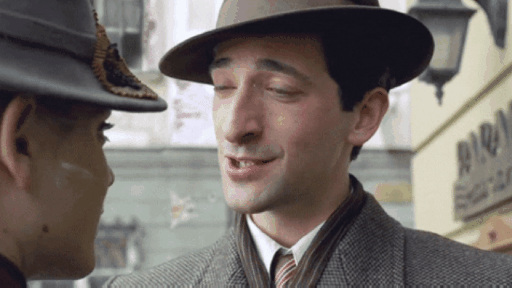
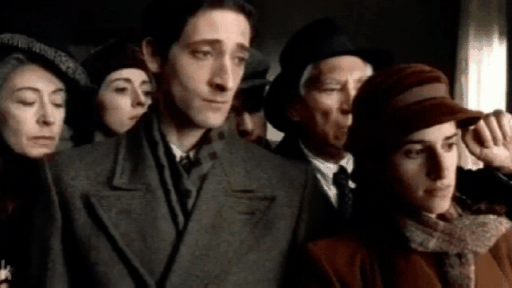
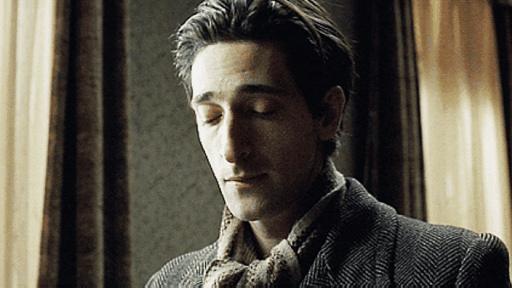
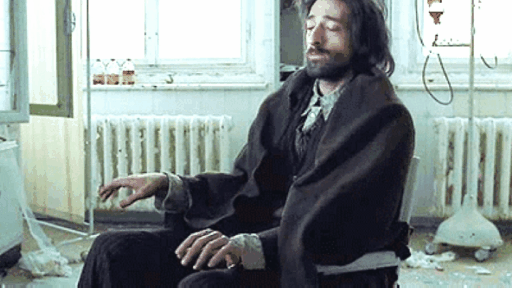
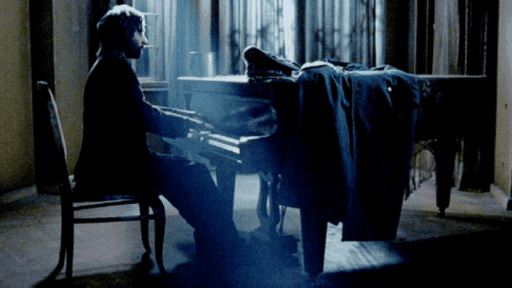
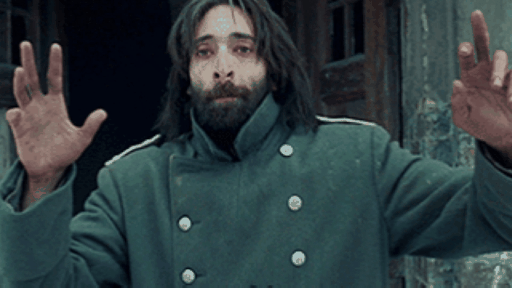
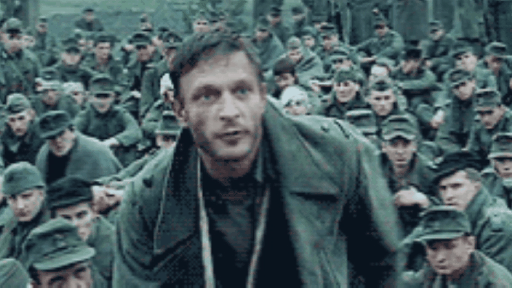
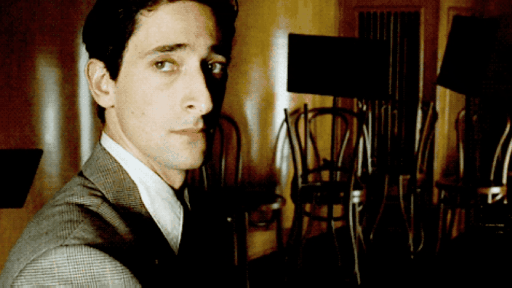
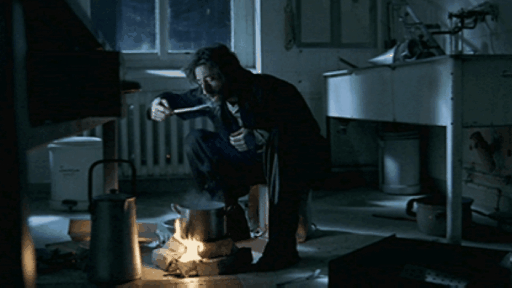
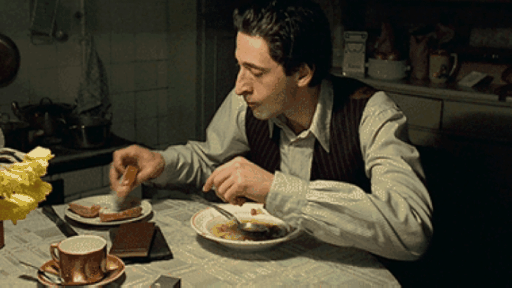
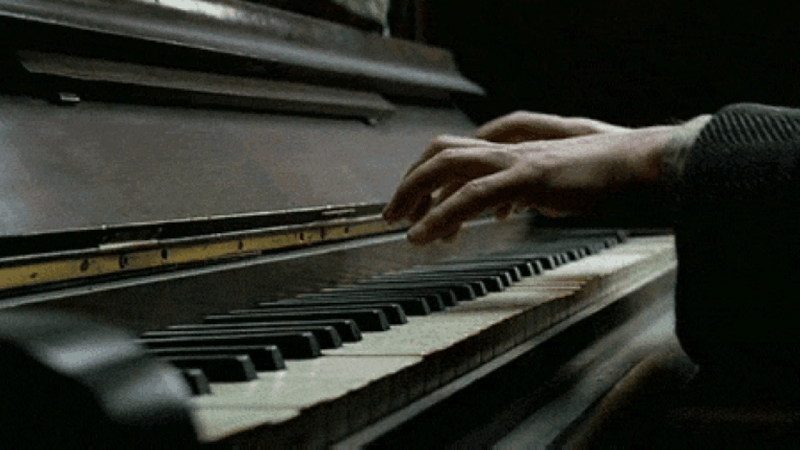


Muy buen post
Esta película es buena, creo que ganó varios premios. Estuve leyendo tu post y sólo quiero decirte que trates de no repetir tanto una misma palabra en un mismo párrafo. Atenta para la próxima, saludos!
Si, ganó varios premios y bien merecidos, es una muy buena película. Gracias por la observación, intento evitarlo pero a veces se me pasa jajaja. Un saludito ✨️💕
Es una excelente pelicula la he visto 03 veces. la recomiendo al 100%
Uff… es una de las mejores películas que he visto en bastante tiempo! Sumamente fuerte. Además d que el actor se llevó el Oscar, el mismo tuvo que someterse a cambios físicos para poder representar adecuadamente al personaje.
Increíble producción basada en hechos ocurridos!
Sí! Es una película excelente y Adrien Brody de verdad que se lució con su papel, efectivamente ganó el Oscar y bien merecido que fue. Toda la película me parece excelente, desde la musica hasta la fotografía y guión, una de las mejores peliculas de Polanski y como mencionas, una de las mejores películas basada en hechos reales.
Gracias por compartir tu valiosa reseña sobre esta gran filmación, que definitivamente todos deberían echarle un vistazo y dejarse llevar por la cruda realidad que vivieron los judíos en 1940. Nos estamos leyendo.
Gracias por pasarte por aqui! Sí, esta es una de las mejores películas que muestra la crudeza de todo lo que tuvieron que pasar los judíos en la segunda guerra mundial, algo desolador, pero donde afortunadamente Szpilman pudo lograr sobrevivir ante la tempestad gracias a la calidad humana que puede existir ante tanto desastre. Un saludito!
Sin duda un clásico sobre el tema de la segunda guerra mundial. Los aspectos que mencionas, fotografía, actuaciones, el guión, son increíbles y es para mí la mejor película de Polanski. Ya que te gusta tanto el tema, ¿cuáles son tus películas favoritas de la segunda guerra mundial? ¿puedes mencionar varias? Saludos.
Si, efectivamente es una película excelente en muchos aspectos, Polanski de verdad hizo un excelente trabajo conjunto a todo el equipo. En cuanto a películas de esta temática puedo destacar La lista de Schindler cuya banda sonora me parece magistral, La vida es bella que me conmovió muchísimo y donde conocí al gran Roberto Benigni, y la más "nueva" sería Jojo Rabbit que la disfruté muchisimo y fui al cine a verla unas dos veces jaja, esas tres son las que más destaco además de la que trata el post, definitivamente El Pianista es mi favorita sobre la Segunda Guerra Mundial.
Un saludo!